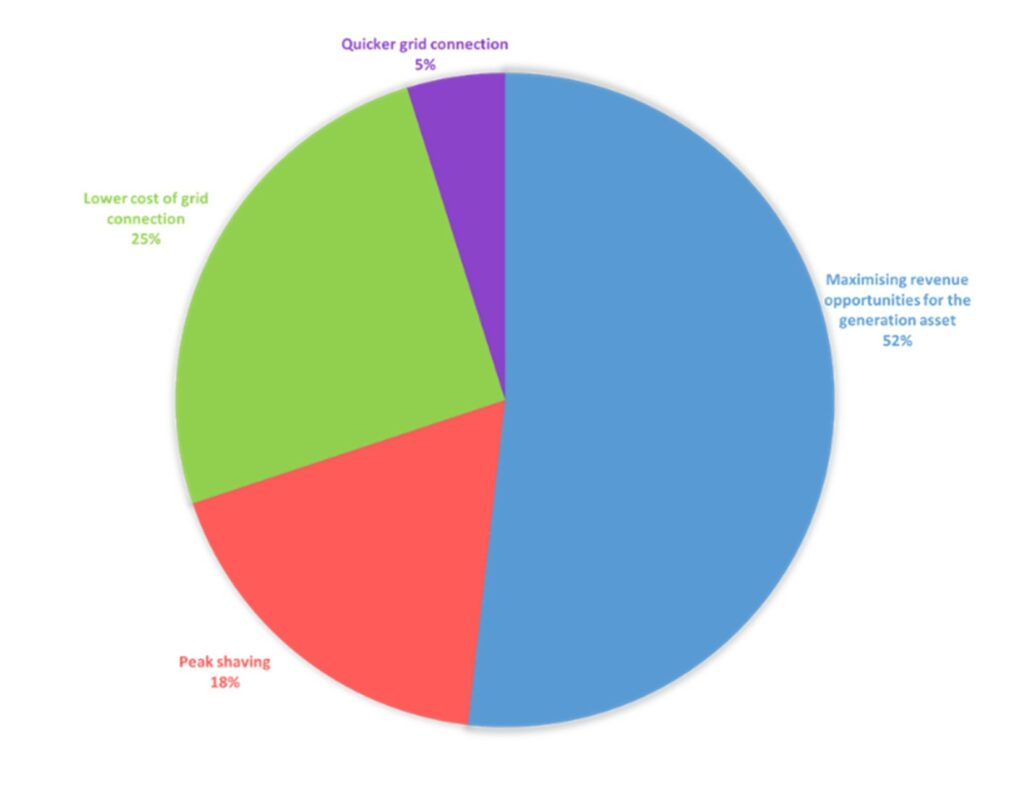
The report – titled Co-location, co-location, co-location – showed that using existing infrastructure and land could reduce capital as well as operational costs. Image: Getty.
Cornwall Insight and national law firm Weightmans have published a new report on the co-location of energy assets, which outlines the “significant cost savings” of having multiple renewable generation or storage assets share one grid connection.
The report – titled Co-location, co-location, co-location – explains the numerous benefits of co-locating energy, including incentivising the development of battery storage and the expansion of energy sources such as solar and wind. According to the report, co-location could also help accommodate new energy as the market expands, such as increasing electric vehicle charging.
Co-location could also help reduce the long and costly process of developing a new site, which involves leasing costs, planning permission and establishing grid connection. If a new renewable generation or storage asset was co-located behind an existing grid connection for example, it could lower the cost of increasing the UK’s renewable generation capacity, the report explained.
Cornwall Insight also identified that using existing infrastructure and land could reduce capital as well as operational costs by taking advantage of any spare grid connection capacity. Co-locating an energy generation site with the demand site would also cut the cost of importing the energy and provide savings that way, continued the report.
A poll of 83 attendees was conducted during a joint Cornwall Insight and Weightmans webinar on co-location on 20 July 2022, and was included in the report, the results of which are depicted in the table below.
Figure 1: Poll of energy experts on the main benefits of co-location

What do you see as the main benefit from co-locating storage with a renewable generation asset? Source: Cornwall Insight.
An additional obstacle to advancing the development of storage assets highlighted by the report is the wait for a grid connection, with some sites having to wait beyond 2030. Adding an a new asset to an existing one, the report said, would allow for a quicker connection to the grid.
“Through co-location of energy assets, we can utilise land that is already being used for renewables and storage, and use untapped grid capacity, cutting the cost and timeframe of expanding renewables – something desperately needed if we are to wean ourselves off unstable foreign energy imports” said Dr Matthew Chadwick, lead research analyst at Cornwall Insight.
“As co-location expands there will be an increasing number of case studies for renewable generators and developers to turn to for best practice, and most importantly the pitfalls to avoid. This could see the ironing out of some challenges and complexities that may have put people off co-locating in the past. Ultimately, if the UK wants to stay on track with its net zero transition, and secure energy supply for decades to come, co-location will need to be an essential tool in the process.”
Another significant component recognised by Cornwall Insight in the growth of battery storage is available funding. Research published by Cornwall Insight earlier this year showed that if battery storage is to continue its upward trajectory, it needs a £20 billion government investment.

